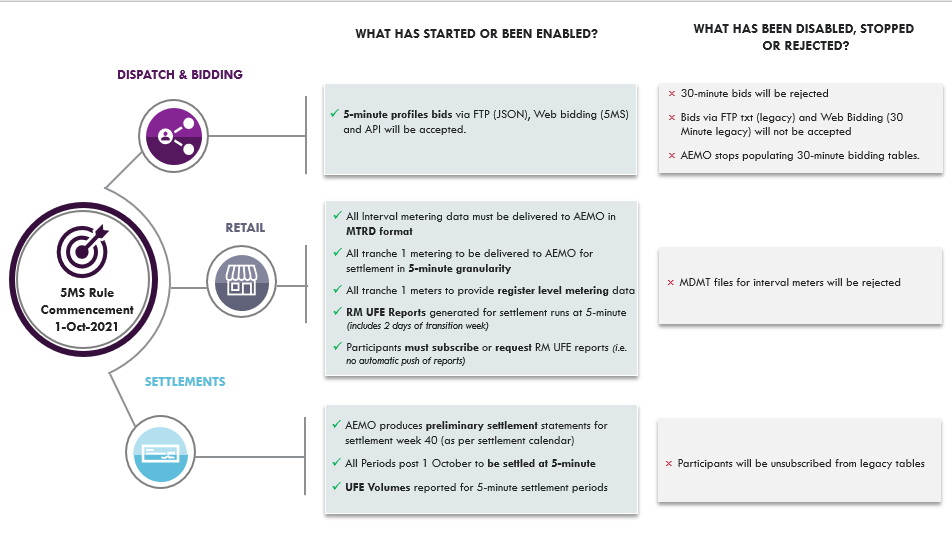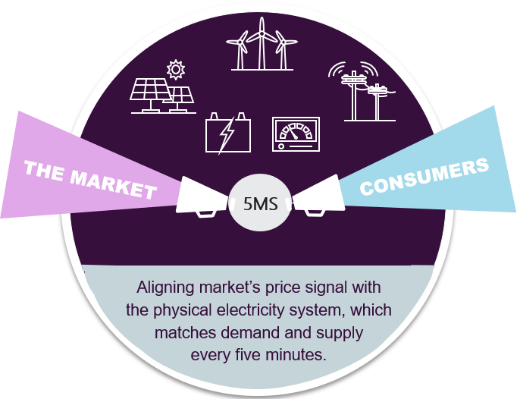5MS Commencement
On 1 October 2021, Five-Minute Settlement (5MS) commenced in the National Electricity Market (NEM), aligning operational dispatch and financial settlement at five-minutes in accordance with the AEMC’s 5MS rule. Refer to the 5MS Factsheet for further details.
On this day, AEMO also began reporting on unaccounted for energy (UFE) values as part of the Global Settlement (GS) soft-start. AEMO will continue to work with industry to implement the full GS changes on 1 May 2022, as per the AEMC’s GS rule. For more, please see Global Settlement.
5MS changes
5MS is one of the most significant reforms since the NEM’s inception in 1998 resulting in changes to metering, settlement, prudentials and bidding processes, as well as electricity retail and wholesale market systems.
AEMO, through its 5MS Program and in consultation with industry, was tasked with implementing the system and procedural changes required to perform five-minute settlement, as well as managing and monitoring industry readiness.
Technology, procedural and market changes
The required technology changes fell into two categories:
- Transforming existing AEMO on premises systems, and
- Creating a completely new metering data management (MDM) system, which is a securely private cloud-based solution.
On the procedures front, over 70 procedures were assessed with approximately 50 of those requiring updates or significant changes.
The market changes as a result of 5MS being live in the NEM are outlined in the diagram below.
Key benefits of 5MS
For consumers
- Supporting the transition to renewables: Investment in fast response and flexible technologies which can respond quickly when the wind stops blowing and the sun stops shining.
- Investment efficiency: Over time, improved price signals should lead to more efficient decisions by generators lowering wholesale costs which make up around one third of a typical bill.
- Facilitating increased demand management: For example, factories that invest in smart IT can switch off machines quickly to avoid high spot prices. Homes with smart batteries can earn a high spot price by providing a boost of power when the system needs it.
For the energy industry (The market)
- More user-friendly interfaces making it faster and clearer to perform tasks, and more automated ways of exchanging data, through additional APIs.
- Improved bidding incentives.
- Improved price signals for more efficient:
- Generation and use of electricity.
- Investment in capacity & demand response technologies to balance supply and demand.








